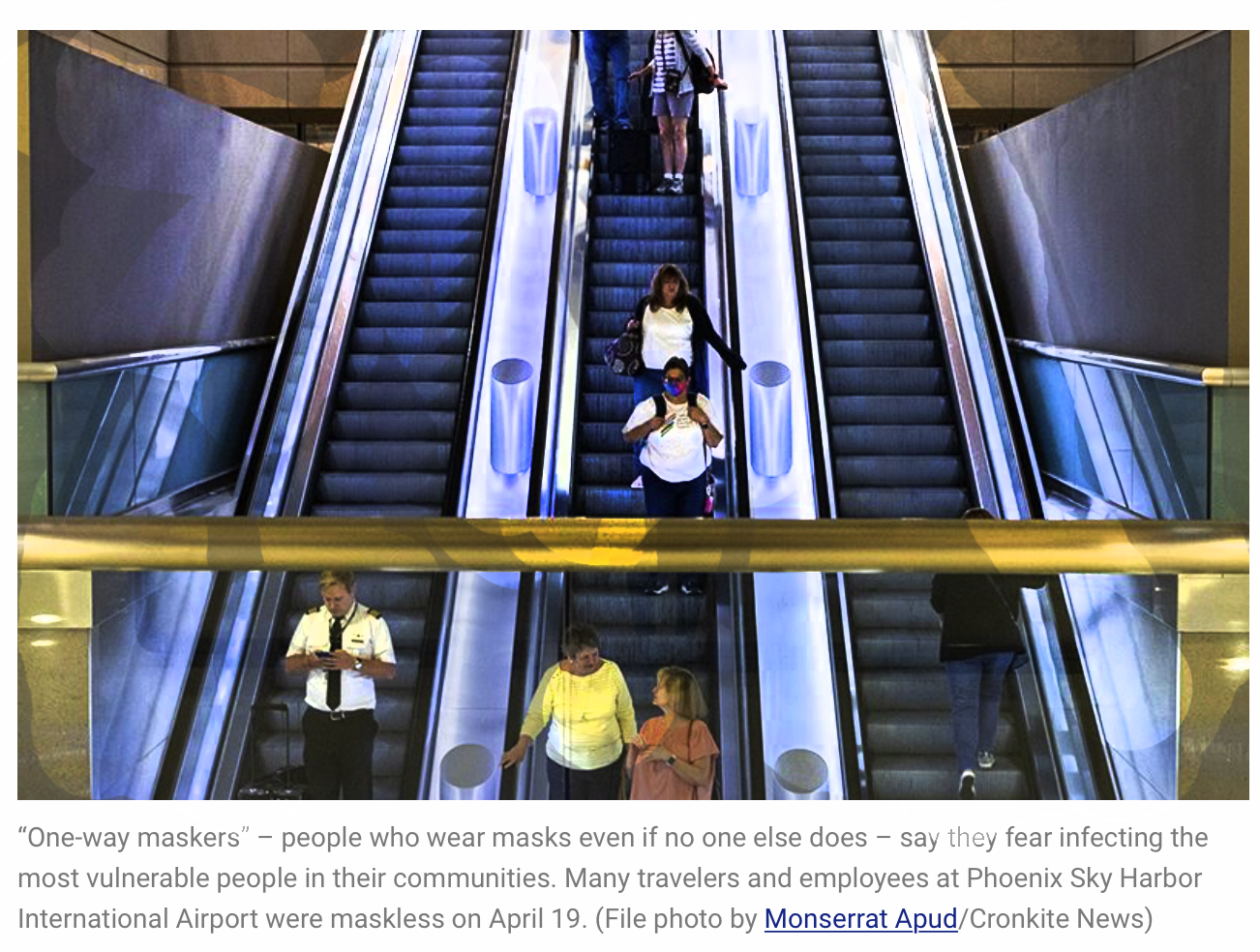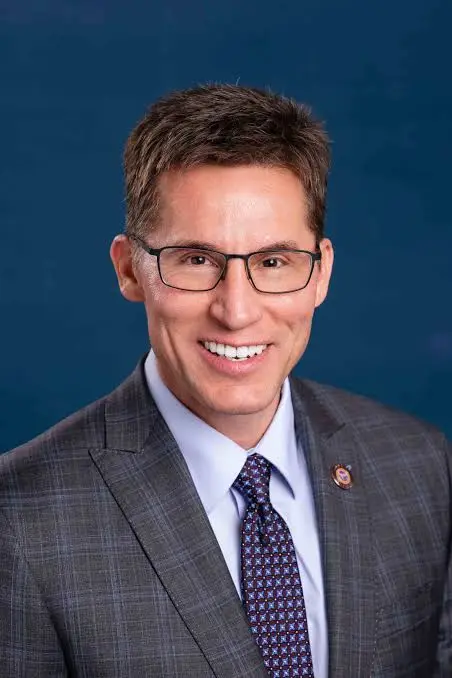By Karen Marroquin/Cronkite News
When a federal judge in Florida struck down the Biden administration’s mask mandate for travelers on U.S. airlines and public transportation last month, many Americans were elated to ditch the mask. But others, particularly people with dangerous underlying health problems, were filled with dread and wondered how they’d stay safe from the coronavirus that causes COVID-19.
“It is concerning to me. There are lots of vulnerable people out there,” said Mara Aspinall, professor of practice and co-founder of the Biomedical Diagnostics Program at the College of Health Solutions at Arizona State University. “There’s tens of millions of people with cancer going through treatment, people with immune disorders, as well as the unvaccinated.”
Aspinall isn’t the only one who feels this way. About 45% of the Americans surveyed in April said it’s too early to end the mask mandate on federal transportation, according to a poll of more than 2,000 participants conducted by Politico.
Fiona Berk, who goes to school in Washington, D.C., feels the same. She’s a “one-way masker” – someone who masks up even if no one else does.
Berk is a fourth year student at George Washington University, where masks still are required indoors on campus. Although she feels comfortable and safe on campus, she faces a different feeling once she leaves for the city.
“A lot of people just don’t wear them (masks) in places around D.C.,” Berk said.
And although Berk, 21, is healthy, she fears for others that are susceptible to catching the virus, which has killed nearly 1 million people in the U.S. since 2020.
“COVID is still raging and people are still dying from it all the time,” she said. “It’s frustrating seeing mask mandates being dropped.”
As of April 13, 2022, the current seven-day moving average of daily new cases in the country was 31,391, an increase of 19.1% compared to the previous seven-day average of 26,357, according to the Centers for Disease Control and Prevention. And cases continue to grow.
“We’re back to 50,000 today,” Aspinall said the week of April 25, referring to Arizona. “Last June we were at 8,000, 10,000 cases a day.”
As cases continue to grow, hospitalizations due to COVID-19 in the state are continuously decreasing. 21 hospitalizations due to COVID-19 were made in the week beginning April 17 in Arizona. This number dropped to 6 in the week beginning April 24, according to the Arizona Department of Health Services.
With the current increase in cases, health professionals advise one-way-maskers and those susceptible to diseases to make sure they’re using the most effective protection possible.
“The best masks that we should be using are the N95 and the KN95,” said Denis Cortese, a retired physician who is a professor and director at the Center for Healthcare Delivery and Policy at Arizona State University.
Results from a study conducted by the CDC from February through December of last year showed that people wearing a cloth mask indoors had 56% less likely to get COVID-19, and those who wore an N95 or KN95 respirator had 83% lower odds of contracting the disease.
While traveling, one-way-maskers will want to protect themselves the most at certain times, health professionals say.
“The time to be most careful in an airplane is when you’re still on the ground because they don’t run as many air changes when you’re waiting to take off,” said Dr. Joshua LaBaer, the executive director of the Biodesign Institute at Arizona State University.
In the midst of increasing cases, Dr. Anthony Fauci, President Joe Biden’s chief medical adviser and the director of the National Institute of Allergy and Infectious Diseases, addressed the country about the pandemic.
“We are certainly, right now, in this country, out of the pandemic phase,” Fauci told PBS NewsHour.
Cortese agrees and hopes the assessment brings some peace of mind to one-way-maskers.
“As time has progressed it’s become less deadly, more infectious, so we’ll have more cases,” Cortese said. “But the cases are not the fatal situations that we were facing two years ago.”
Because the coronavirus has become less deadly, LaBaer said, one-way maskers shouldn’t have to be too worried.
“The combination of wearing a good mask and the low count numbers should keep those people safe,” he said.
But Aspinall isn’t so sure.
“This (coronavirus) is not predictable, and we don’t know,” Aspinall said. “And because of travel being wide open, or really never closed fully, what happens in South Africa, what happens in Europe, what happens in Latin America and Asia and otherwise, is all relevant to us.”
In December 2021, a study published by researchers at the Johns Hopkins Bloomberg School of Public Health and the University of Washington showed that vaccinated individuals with immune dysfunction, including immunocompromised people with such conditions as HIV and rheumatoid arthritis, had a higher rate for COVID-19 breakthrough compared with those who had no immune dysfunction.
And this is one of the reasons why it won’t stop Berk and other one-way-maskers from covering up.
“You never know when someone is immunocompromised,” Berk said. “And I feel like as a decent human being, if doing something as simple as wearing a mask helps protect those in danger, I’ll do it.”








